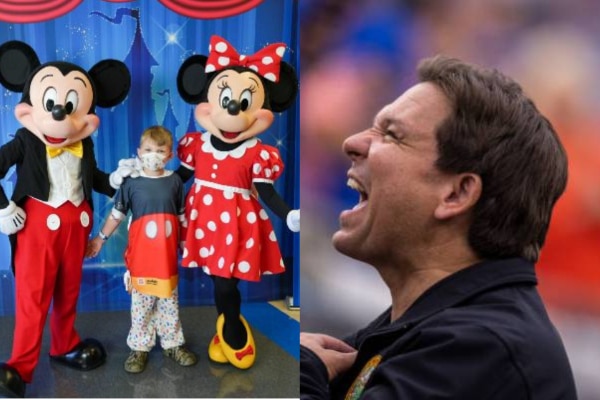The governor of Florida Ron DeSantis has taken control of Walt Disney World’s self-governing district, punishing its opposition to the ridiculous “Don’t Say Gay” law.
The signing came as DeSantis gears up for a likely presidential run for a governor whose cultural and political divides has pushed him to the fore of national Republican politics.
“Today the corporate kingdom finally comes to an end,” he said at a bill signing ceremony in Lake Buena Vista. “There’s a new sheriff in town, and accountability will be the order of the day.”
The takeover of the Disney district began last year when the entertainment giant, facing intense pressure, publicly opposed “Don’t Say Gay,” which bars instruction on sexual orientation and gender identity in kindergarten through third grade and lessons deemed not age-appropriate.
DeSantis moved quickly, directing lawmakers to dissolve Disney’s self-governing district during a special legislative session, beginning a closely watched restructuring process.
DeSantis and other Republican critics of Disney slammed the company for coming out against the education law, calling it a purveyor of “woke” ideology that inject inappropriate subjects into children’s entertainment.
DeSantis bolstered his reputation as a culture warrior willing to battle perceived political enemies and wield the power of state government to accomplish political goals, a strategy that is expected to continue ahead of his potential White House run.
The new law changes the district’s name from the Reedy Creek Improvement District to the Central Florida Tourism Oversight District and subjects it to various layers of state oversight. Board members were previously named through entities controlled by Disney.
It leaves the district and its financial abilities and debt obligations intact, addressing a chief concern of surrounding governments.
The creation of the self-governing district was instrumental in Disney’s decision to build near Orlando in the 1960s.
The company had told the state it planned to build a futuristic city that would include a transit system and urban planning innovations, so the company needed autonomy in building and deciding how to use the land.
The futuristic city never materialized and instead morphed into a second theme park that opened in 1982.








